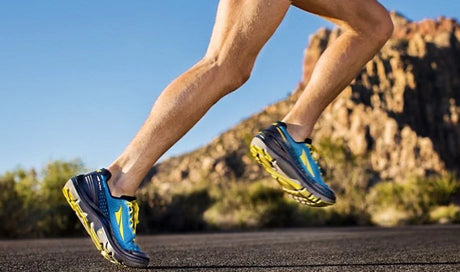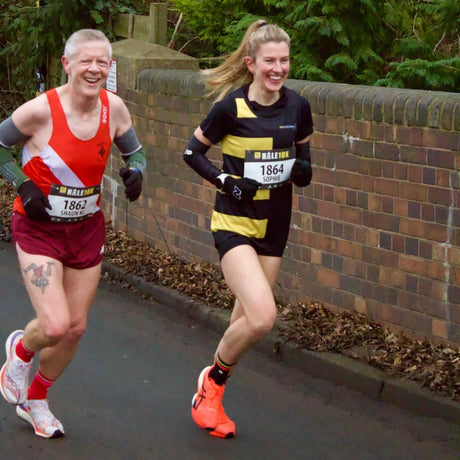London Marathon 2025: A Record-Breaking Run Through the Heart of the Capital
The average finish time for 2025? A swift 4 hours, 6 minutes, and 7 seconds. That’s just over 10 minutes faster than in 2022!
Check out our new arrivals. Click here
Contact Us for Expert Help and Advice
Free shipping on orders over £70
FREE socks with full price trainers
The average finish time for 2025? A swift 4 hours, 6 minutes, and 7 seconds. That’s just over 10 minutes faster than in 2022!

Ever noticed Altra shoes on our wall and wondered what sets them apart? They look a little different — in the best way — and they feel even better on...

Crossing the finish line of a marathon - whether it was London, Manchester, or any other race — is an unforgettable achievement. But your running journey doesn’t end there. How...

For many women, running during their menstrual cycle can feel like navigating uncharted territory. The hormonal shifts throughout your cycle can impact energy levels, endurance, strength, and even hydration needs....
Enjoy 10% off when you sign up to our mailing list! Enter your email below and we'll send you a code for 10% off your order!
Enjoy 10% off when you sign up to our mailing list! Enter your email below and we'll send you a code for 10% off your order!
